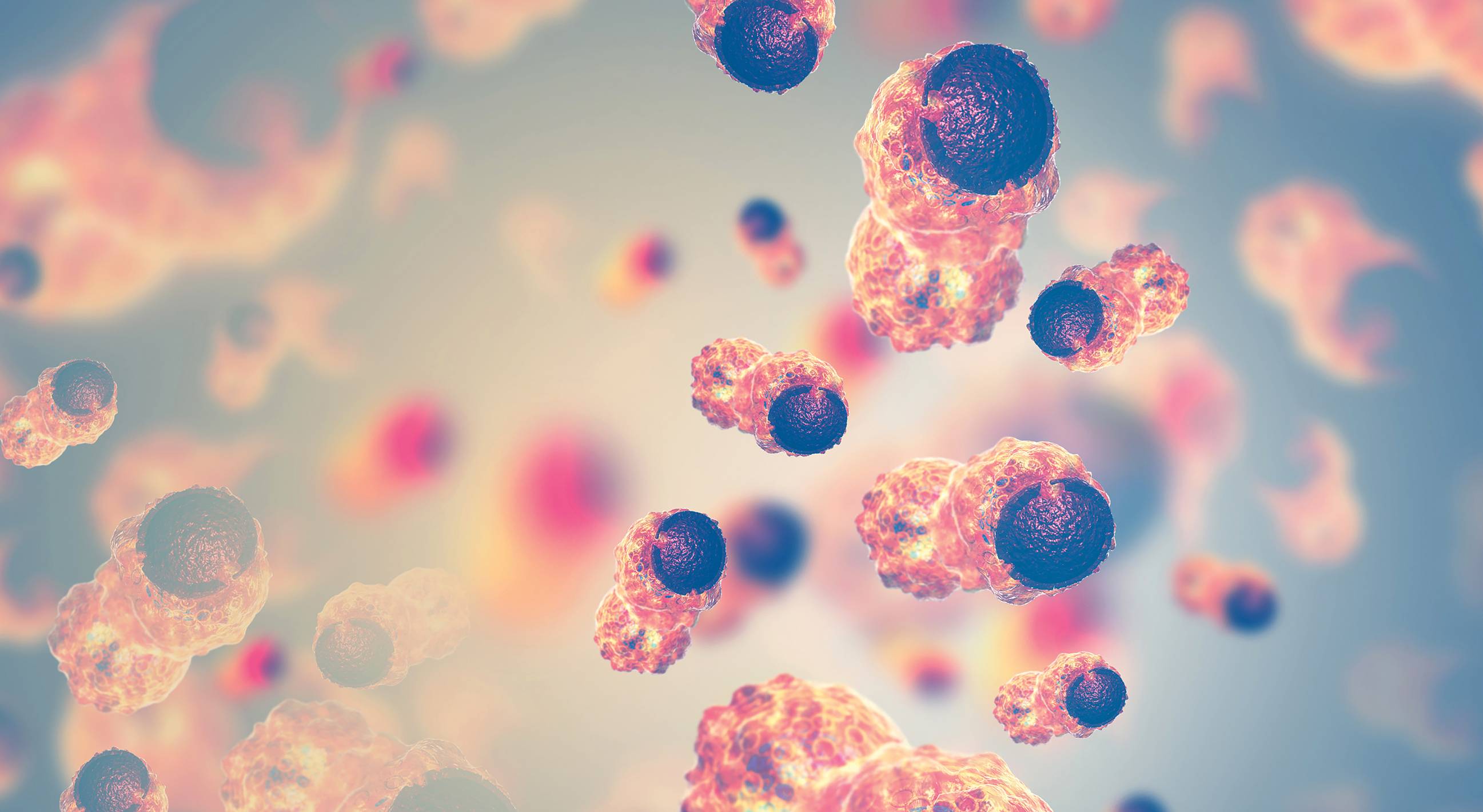
Keeping Cancer in Check
by Debbie Ritenour
Nutrition professor studies obesity’s impact, how to reverse progression on disease
According to the American Cancer Society, approximately 42% of cancers are preventable. For decades, tobacco use has been the No. 1 cause of preventable cancers, but as smoking rates fall, a different factor is poised to rise to the top of the list.
“In the next decade, researchers expect obesity to overtake smoking as the leading preventable cause of cancer-related deaths,” says Dr. Ramona Salcedo Price, Texas State University assistant professor of nutrition. “Obesity is a risk factor for more than 13 different types of cancer, including breast cancer, prostate cancer, and liver cancer.”
Price, whose research focuses on the impact of obesity on prostate cancer, liver cancer, and non-alcoholic fatty liver disease, seeks to identify strategies to reverse the impact of obesity on the progression of cancer.
“Due in part to metabolic dysregulation, hormones, and inflammation, obesity impacts all the important characteristics of cancer, known as the hallmarks of cancer, in such a way that it increases the development and progression of the disease,” Price says. “By studying the link between obesity and cancer, we may be able to figure out how to put the brakes on that.”
"In the next decade, researchers expect obesity to overtake smoking as the leading preventable cause of cancer-related deaths."— Dr. Ramona Salcedo-Price
When Price began her doctoral studies at The University of Texas at Austin 10 years ago, there was a major emphasis on calorie restriction and cancer prevention. “At the time, it was known that obesity increased the risk of advanced prostate cancer,” Price says. “I wondered, ‘What if the individual is obese and just received a diagnosis of advanced cancer? How would that impact their prognosis and survival?’ ”
After delving into the literature, Price learned that both inflammation and obesity increase cancer progression. She hypothesized that the link between obesity and cancer may lie in inflammation. Her dissertation proposal was born.
Graduate student researchers
Since joining the Texas State faculty in 2014, Price has continued researching the obesity–cancer link. Price and her team, which includes five undergraduate students and three graduate students, use preclinical models of cancer cells and mouse models to investigate at a molecular level how obesity contributes to the development and progression of cancer.
“As a team, we are exploring different characteristics and the roles of certain proteins in obesity and cancer, and by doing experiments we can see this phenomenon in the liver tumorigenesis microenvironment (a high saturated fat diet),” says Kelsie Raign (B.S. ’19), a graduate student in nutrition who has been working with Price for 18 months. “This inquiry allows us to support the theory that a common and modifiable disease caused by obesity is cancer, and the more support for this theory, the closer we get to controlling this disease.”
Senior nutrition major Jessica Beristain Herrera says she has discovered in her work with the professor that there are an exponential number of variables that come into play in cancer’s initiation and progression. “Participating in this research has helped open my eyes to all the different possibilities in this field and has truly been inspirational,” she says.
While their goal is to optimize nutritional strategies to reverse the impact of obesity on cancer progression, they have made some unexpected discoveries as well. “We’re working with visfatin, an obesityrelated protein, and have found that it can mimic the way insulin signaling works,” Price says. “This has implications for not only cancer but also diabetes.”
Obesity rates rise
Understanding the relationship between obesity and cancer is critical as obesity rates continue to rise. Texas has the 10th highest adult obesity rate in the nation at 34.8%. In 1990, the adult obesity rate in Texas was 10.7%. But it’s not just adults who are at risk, Price notes. “Obesity has been linked to cancer in younger people as well,” she says. “We’ve seen higher cancer rates among younger people with obesity.”
There are several reasons for the increasing obesity rates, including genetics, lifestyle, and environmental factors. In terms of diet and nutrition, the average daily caloric intake has increased over the last few decades as portion sizes have grown and people consume more fast food and sugar-sweetened beverages. At the same time, many people aren’t eating enough fruits, vegetables, and nuts, which can protect against weight gain.
“Our modern activity levels have changed as well,” Price says. “There has been a decrease in the amount of exercise we get both at the workplace and during our leisure time. What we do in our spare time is a factor.”
Nutrition can play a key role in cancer prevention and survivorship, but the relationship isn’t easy to understand. “A lot of people don’t realize that diet affects cancer in both good ways and bad ways,” Price says. “Different components of our food protect against cancer differently. Red meat, for example, is a risk factor for colorectal cancer, but at this time there is limited evidence that it increases the risk for cancers of the lung and pancreas.”
Recommended guidelines
Instead of focusing on specific foods associated with certain cancers, Price recommends people follow the 10 cancer prevention recommendations developed by the American Institute for CancerResearch and the World Cancer Research Fund. These include eating a diet rich in whole grains, vegetables, fruits, and beans; limiting consumption of fast foods and other processed foods high in fat, starches, or sugars; and limiting alcohol consumption. “These guidelines are based on a review of thousands of academic papers,” Price says. “They represent the current scientific evidence.”
Ultimately, Price aims to add to the scientific evidence with her research. In doing so, she hopes it will be used to inform future clinical interventions. “The more we know about the link between obesity and cancer, the better we will be able to identify strategies that improve cancer-related outcomes,” she says. ✪